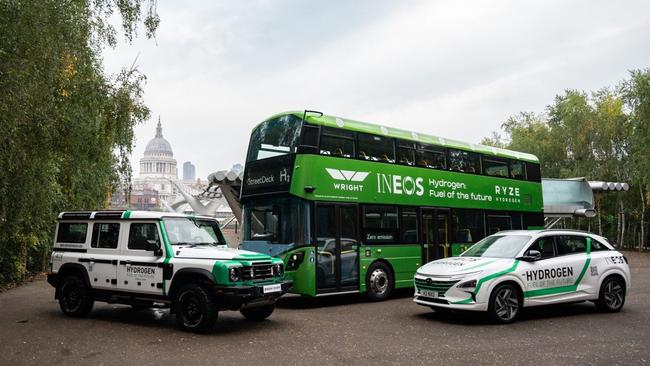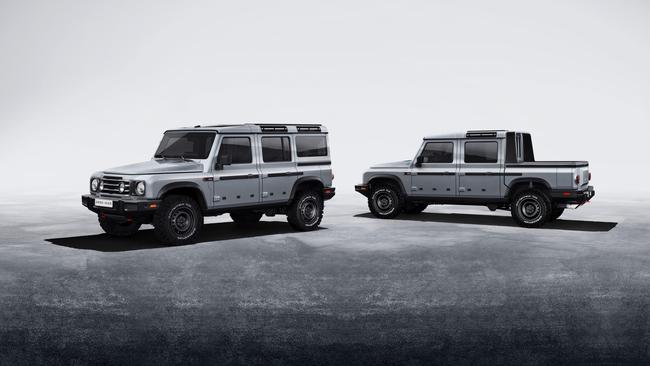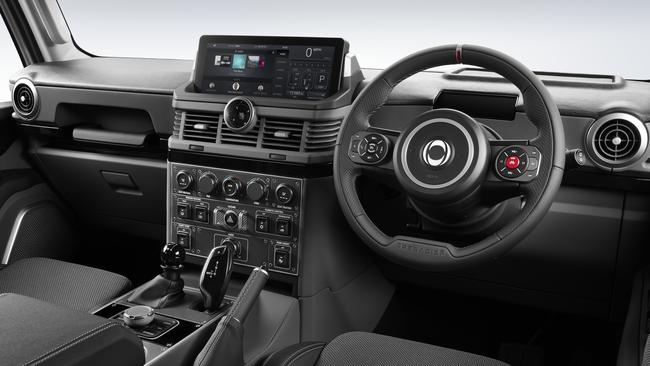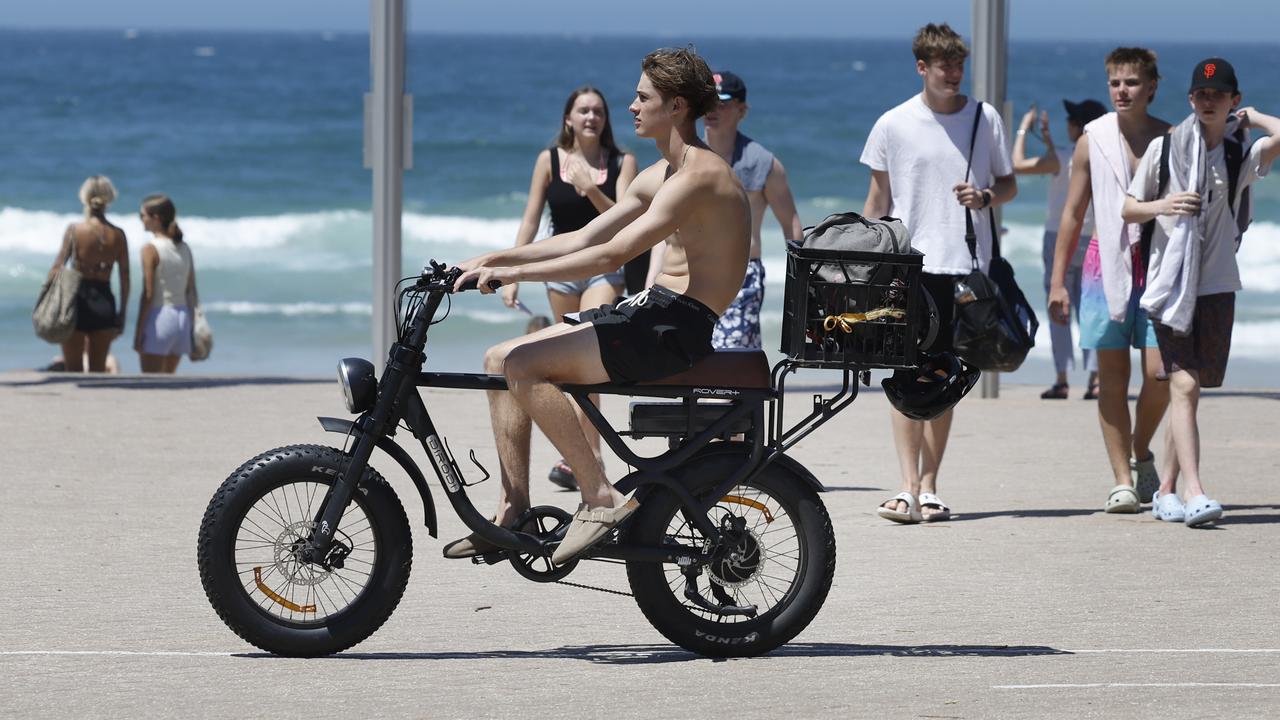Green power for new Ineos Grenadier
The British upstart taking on Toyota and Land Rover has revealed its new ute and four-wheel-drive will debut new technology.
Motoring News
Don't miss out on the headlines from Motoring News. Followed categories will be added to My News.
The off-road start-up formed in a pub looks set to beat the world’s largest manufacturers by being the first brand to build a four-wheel-drive powered by hydrogen.
Ineos Automotive has announced plans to build test examples of its new Grenadier with hydrogen fuel cell power from Hyundai.

Ineos Automotive was started by an enormous energy company that thought it could do a better job of building off-road machines after buying thousands of rugged cars for its own purposes.
The Grenadier – named after the pub where its founders decided to take on Land Rover and Toyota – is already testing on Australian soil ahead of a retail debut next year.
The first-generation Grenadier will have a choice of BMW-sourced 3.0-litre, six-cylinder petrol or diesel power, both available for $84,500 plus on-road costs.

Those models will be followed by a machine propelled by electric motors linked to a hydrogen fuel cell.
Ineos says it “is backing hydrogen as a clean energy solution for future versions of the vehicle”, and that it will “use fuel cell technology from Hyundai Motor Company”.
Hyundai’s Nexo was the first car powered by a hydrogen fuel cell offered in Australia.
Our guess is that the four-wheel-drive Grenadier could effectively double the front-wheel-drive Nexo’s hardware, which could result in 240kW and 790Nm outputs appropriate for a full-sized four-wheel-drive.

Ineos has not confirmed a production date for its green machine.
That might be because hydrogen fuel cell instrastructure is still in its infancy in Australia and abroad.
Hydrogen fuel cells promise to blend the near-silent refinement and emissions-free power of an electric motor with the fast-fuelling convenience of combustion-powered machines.
Some industry experts believe hydrogen is the long-term solution to future transport, particularly for heavy-duty applications such as trucks and utes, which require a lot of energy and would require long charging times if converted to electric running.
Others believe fuel cell technology has a questionable future for the vast majority of motorists given the enormous infrastructure commitment required to make hydrogen fuelling stations a practical alternative to electric and conventional power.
Originally published as Green power for new Ineos Grenadier


